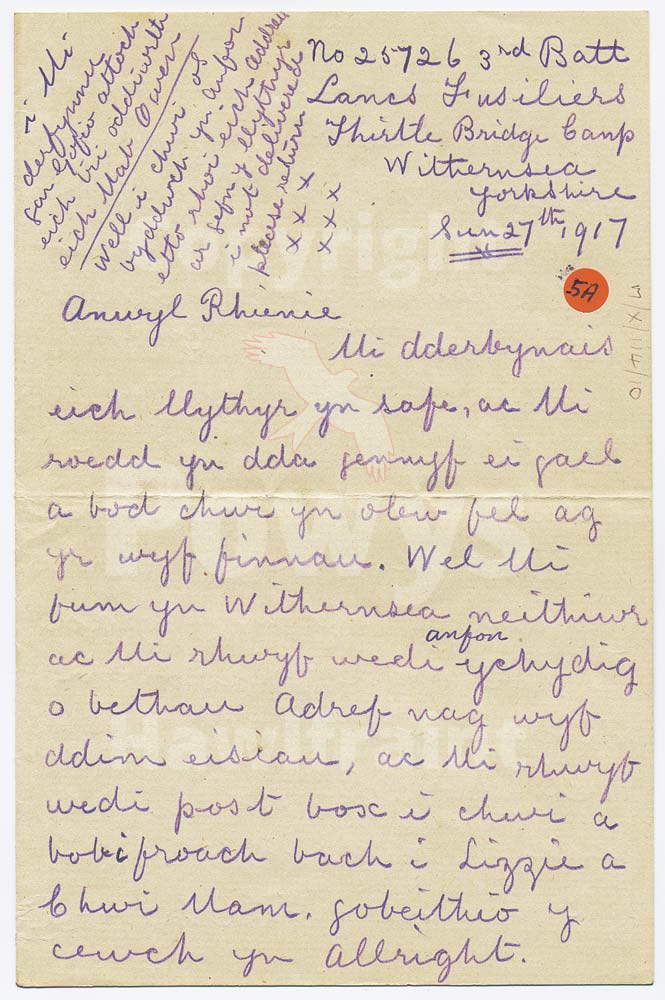Owen Ashton War Letters
(M/X/114)
Thanks to the generosity of a local family, Powys Archives houses an important collection of letters written by a man to his family in Montgomeryshire while he was serving in the trenches during the First World War.
Owen Ashton, from Chapel House in Llawryglyn, was called up in 1916, and seems to have gone to France in 1917. At first the letters are in Welsh, but soon the demands of the censor mean that he has to write in English.
Interestingly, although Owen cannot say where exactly he is, he does manage to write about the conditions under which he is living and fighting, and he is able to express his feelings about the horror of what he is witnessing, without his letters being impounded: “the People in England Got no idea what it is out here”; “them men that is keeping this war on ought to come and stand in these places, and [see] what we have to go through for few minutes to see how would they like it”.
Used as we are to learning of the First World War through the harrowing poetry of Wilfred Owen and his contemporaries, these simple letters have an immediacy which touches us as much if not more - after all they are written by an ordinary man, not a poet, who finds himself living through unimaginable events, striving to do his duty and also to survive to return to his home.
In many of the letters he asks about the hay or the animals, and regrets not being there to help his father. Juxtaposed with this are matter-of-fact accounts of gas attacks - the gas was “like fog” and he now has “something breaking out on my face” - of colleagues being shot, the lack of food (and the men’s consequent reliance on food parcels), the shell holes full of water, the trench foot and the dreaded chatts (lice).
There are flashes of humour, as when Owen says that he is helping the cook to “burn the water”, and through it all runs an abiding belief in God and the fervent hope that he will see them all through this terrible war.
Despite his assertion that “many of us will not be much good after this lot”, Owen came home, returned to his work on the roads, married, had children and lived to a good age. These letters are a tribute to the quiet courage and resilience of a man transplanted from his rural Welsh roots into the carnage of the trenches, and they provide us with an invaluable insight into the horrors he faced with such stoicism.


